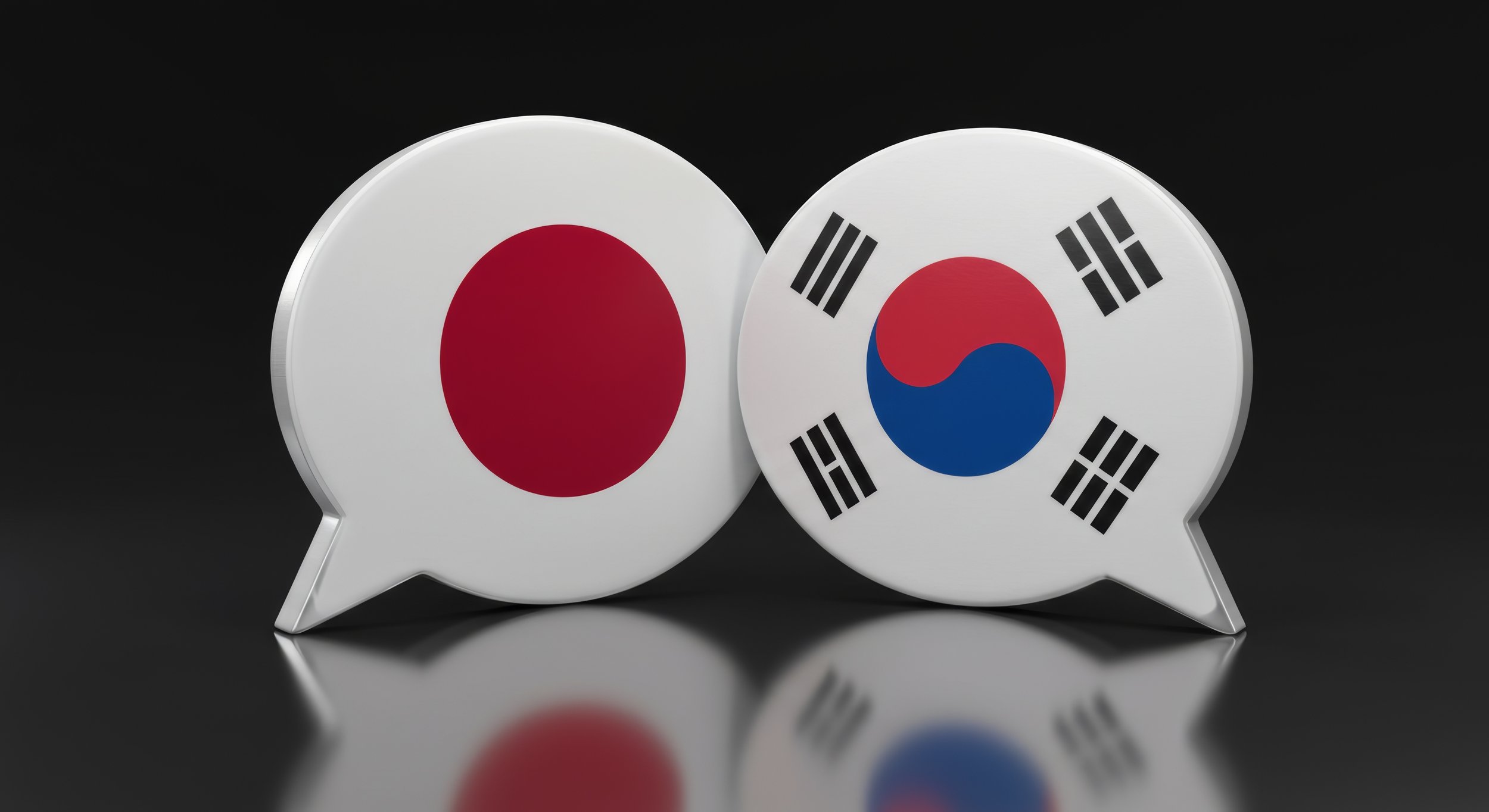Realizing Japan-South Korea Security Cooperation Amid Increasing Global Insecurity
The intense exchange between US President Donald Trump and Ukrainian President Volodymyr Zelenskyy on February 28 [1] and the subsequent pause in US military aid to Ukraine [2] have raised serious questions regarding the Trump administration’s attitude towards American security commitments, including NATO.
As European leaders scramble to reinforce the strategic status quo across the Atlantic [3], the sudden shift in US foreign policy and Trump’s transactional approach to strategic cooperation have also raised concern regarding the credibility of American security guarantees in the Pacific. [4]
Although President Trump recently pledged “the full strength of American deterrence capabilities” in defense of close US ally Japan, on March 6 the president alarmed policymakers in Tokyo by questioning the fairness of the US-Japan alliance, alleging that the 1960 Japan-US Security Treaty disproportionately benefits Japan. [5] Meanwhile, experts warn that declining trust in US security agreements could pressure nuclear-latent countries, particularly South Korea and Japan, to abandon the Nuclear Non-Proliferation Treaty and pursue their own nuclear deterrent. [6]
Amid growing skepticism regarding Washington’s continued commitment to security in East Asia, Japan and South Korea are presented with an immediate and apparent alternative to address the challenges of an increasingly insecure Indo-Pacific, namely the realization of bilateral security cooperation.
However, despite numerous diplomatic initiatives and trilateral dialogues between Japan, South Korea, and the United States since the normalization of Japan-Korean relations in 1965, historical grievances continue to frustrate cooperation between Tokyo and Seoul. [7]
Japanese leaders have issued apologies and ordered the payment of reparations for the colonial occupation of Korea by the Empire of Japan from 1910 to 1945, but the historical legacy of forced labor and sexual slavery committed by imperial forces continues to overshadow Japan-South Korea relations. [8]
The election of current Japanese Prime Minister Shigeru Ishiba in October 2024 encouraged speculation that Tokyo may redouble its efforts in seeking stronger relations with Seoul, as Ishiba reportedly held progressive views on historical issues between Japan and South Korea. [9] However, in the same month, Prime Minister Ishiba drew criticism from South Korea's Ministry of Foreign Affairs [10] after sending an offering to Tokyo's controversial Yasukuni Shrine, where 14 “Class A” convicted Japanese war criminals of the Second World War are interred.[11]
Unlike in Europe, where NATO provides a multilateral platform for strategic dialogue and cooperation, security in East Asia is largely dependent on bilateral treaties between the United States and its allies, Japan and South Korea.
As US foreign policy grows more ambiguous and America becomes an increasingly unreliable strategic partner, greater security cooperation between Japan and South Korea may prevent further deterioration of strategic stability in East Asia.
By publicly distancing himself from the Yasukuni Shrine and recognizing the historical contributions of, and discrimination against, Japan’s Korean diaspora, or Zainichi [12], Prime Minister Ishiba would signal a sincere effort on behalf of Japanese leadership to acknowledge the country’s colonial history. Japan’s increased sensitivity towards South Korea’s historical grievances could strengthen mutual trust and reciprocity between Tokyo and Seoul and accelerate the bilateral dialogue on greater security cooperation between both nations.
[1] Licon, Adriana Gomez. “What they said: Trump, Zelenskyy and Vance’s heated argument in the Oval Office.” The Associated Press, 1 March 2025. https://apnews.com/article/trump-zelenskyy-vance-transcript-oval-office-80685f5727628c64065da81525f8f0cf.
[2] Madhani, Aamer. Miller, Zeke. Mascaro, Lisa. “Trump pauses US military aid to Ukraine while pressuring Zelenskyy to move toward quick end to war.” The Associated Press, 4 March 2025. https://apnews.com/article/trump-zelenskyy-russia-ukraine-a15a459c9a3a393d040478ebbe250a9e.
[3] “How European leaders are responding to Trump’s approach to Ukraine and Europe.” Atlantic Council, 6 March 2025. https://www.atlanticcouncil.org/blogs/new-atlanticist/experts-react/how-european-leaders-are-responding-to-trumps-approach-to-ukraine-and-europe/.
[4] Sieg, Linda. “Japan on red alert as Trump rocks international alliances.” Nikkei Asia, 13 March 2025. https://asia.nikkei.com/Opinion/Japan-on-red-alert-as-Trump-rocks-international-alliances.
[5] “Trump complains security pact with Japan nonreciprocal.” The Mainichi, 7 March 2025. https://mainichi.jp/english/articles/20250307/p2g/00m/0in/021000c.
[6] Das, Debak. “An Unreliable America Means More Countries Want the Bomb.” Foreign Policy, 14 March 2025. https://foreignpolicy.com/2025/03/14/trump-nuclear-weapons-proliferation-nato-security-guarantees-korea-poland-germany-japan/.
[7] Kim, Ju Hyung. “A Challenging but Essential Task: Security Cooperation Between South Korea and Japan.” 38 North, the Stimson Center, 6 September 2024. https://www.38north.org/2024/09/a-challenging-but-essential-task-security-cooperation-between-south-korea-and-japan/.
[8] Kim, Hyung-Jin. “Leaders of S. Korea, Japan agree to strive to improve ties.” The Associated Press, 22 September 2022. https://apnews.com/article/united-nations-general-assembly-states-tokyo-seoul-japan-510ab17ad580c1d53a08abd2d5b42efc.
[9] Hyo-jin, Lee. “New Japanese PM's progressive historical views raise hope for Seoul-Tokyo relations.” The Korea Times, 30 September 2024. https://www.koreatimes.co.kr/www/nation/2025/03/113_383324.html.
[10] “Japan's Ishiba sends offering to Yasukuni Shrine, angering S. S.Korea, China.” Reuters, 17 October 2024. https://www.reuters.com/world/japan/japan-pm-ishiba-sends-offering-yasukuni-shrine-ahead-election-2024-10-17/.
[11] “Explainer: Why Yasukuni shrine is a controversial symbol of Japan's war legacy.” Reuters, 15 August 2021. https://www.reuters.com/world/asia-pacific/why-yasukuni-shrine-is-controversial-symbol-japans-war-legacy-2021-08-13/.
[12] Lie, John. “Zainichi: The Korean Diaspora in Japan.” The Association for Asian Studies, 2009. https://www.asianstudies.org/publications/eaa/archives/zainichi-the-korean-diaspora-in-japan/.


